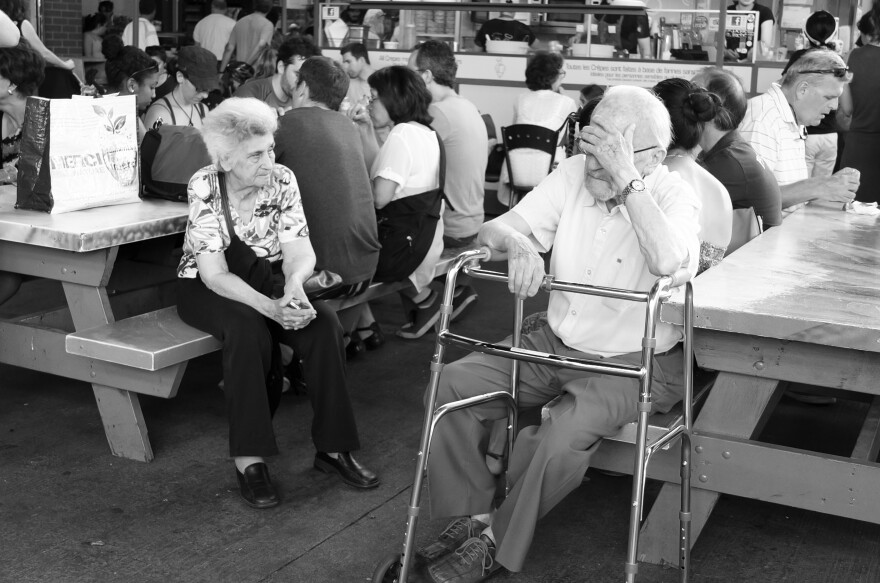After experiencing the death of his grandparents, a South Florida lawmaker wants to the change how patients are treated at the end of life.
Republican Senator Jeff Brandes of St. Pete is worried about how Floridians are dying. And for him, it’s personal.
“You know, having to see both my grandparents pass in the last few years, and being in the room when these conversations took place, and they were incredibly emotional, and the urge to say do everything, no matter what that is, is sometimes so strong,” Brandes said.
In the chaos of an emergency room or intensive care unit, patients’ may not be able to make their wishes known, whether that’s for palliative or aggressive care.
“If we had had the conversations earlier I think my grandparents would’ve made some different choices than maybe our family made at that time,” Brandes admitted.
And the statistics bear out that most Americans aren’t getting the kind of end of life care they want. Polling data shows between 70 - 80 percent of people want to die at home. But according to the Centers for Disease Control and Prevention, only 25 percent of Americans actually do. Even for the estimated 20 - 30 percent of people who do have an advanced directive detailing their wishes, it doesn’t always happen. Marshall Kapp heads up a collaboration between the schools of Medicine and Law at Florida State University.
“The problem is in actual practice, when an emergency arises and the patient can’t speak for himself anymore, or herself anymore, that living will either isn’t available, or it just doesn’t get followed, or it’s in terms that are too general to be applied to the specific situation,” Kapp said.
That’s why Jeff Brandes wants terminally ill Floridians to start using a new kind of document, called a POLST, or physician order for life-sustaining treatment.
“So it’s really that opportunity to identify that conversation earlier and to work with the patients to make sure that we identify their goals for the end of life, and that we’re following their goals in a medical order format,” Brandes said.
A POLST is basically an expansion of a do not resuscitate order, that includes a range of interventions. It’s a medically specific document that patients and doctors fill out together. And Brandes’ bill would protect doctors from legal action when they carry out those orders. Marshall Kapp says that’s the main obstacle.
“Healthcare professionals, including doctors, live in a litigious environ. They’re afraid of potential legal consequences. And they’re just not likely to do POLST for patients, or to honor POLST in the absence of explicit Florida legislation,” Kapp said.
This isn’t the first time Brandes has tried to get this bill passed. Last legislative session, some pro-life groups worried the orders could be abused. Diane Gowski represents the Florida Catholic Medical Association Guild.
“Are you signing your life away? That is the question you need to ask when approaching a POLST,” Gowski said at a legislative committee hearing.
But Kapp says POLST orders should not be confused with physician-assisted death.
“It’s not a form of euthanasia. It’s not a form of denying desired, appropriate medical treatment for patients. It’s a way for patients to have the kind of treatment that they want,” Kapp said.
Other states are already using POLST orders, but a 2016 paper published in the Journal of the American Medical Association concludes it’s still not clear whether POLST really does improve outcomes. Still, proponents argue any way to give patients more control in their final days, is worth talking about.




